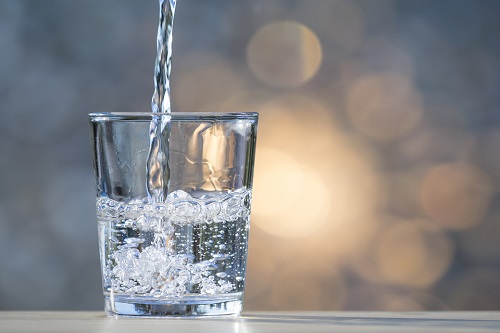Holiday Fluid Management (Part Two)

In Holiday Fluid Management: Part One we discussed target weight (TW) and interdialytic weight gains (IDWG). In part two, we will discuss ultrafiltration rate (UFR) and relationship to fluid management.
What is UFR?
UFR stands for Ultrafiltration Rate. Growing evidence suggests that fluid-related factors play important roles in hemodialysis patients’ health. Ultrafiltration rate is one such factor (5). In simple terms, UFR indicates how quickly the fluid you gained is being removed from your body during your dialysis treatment. The Centers for Medicare & Medicaid Services (CMS) mandates that UFR should not go higher than 13 ml/kg/hr.
High IDWGs and UFR
If you gain large amounts of fluid in between treatments, it is more difficult to easily and safely remove the fluid during your dialysis time.
Larger intradialytic weight gains (IDWGs) and/or shorter dialysis treatments may require more rapid UFR (3). One way to avoid high ultrafiltration rates is to limit intradialytic weight gains between treatments, especially when there are two days with no treatments.
Up to 60% of the body is water. It is an essential nutrient that is involved in many body functions (4). However, a patient with very little or no kidney function, whose urine output is minimal or does not urinate at all, does not have normal fluid balance. They need to restrict fluid intake on a daily basis for fluid management; otherwise, IDWGs will be high. If your IDWG is greater than 3% to 4% of your TW, you may be drinking too much. Your health care team may counsel you if you need to cut your fluid intake down. If you are drinking 32 ounces a day, you might need to decrease to 28 or 24 ounces a day, or even less if you are a very small frame person.
Let’s do simple math. TW is 70 kg. (154 lbs.), 2.1 Kgs. (4.6 lbs.) is 3% of 70 kg. This is the limit for IDWG between treatments. After two days with no dialysis, 2.4 kgs (5.2 lbs.) is a maximum fluid gain goal.
Keeping IDWG within your goal is an important part of fluid management. Excessive fluid gains can lead to the need for extra dialysis treatments, hospitalization for fluid overload or even death.
Improving IDWG and UFR
Your dialysis care team can help you learn more about improving IDWG and factors that impact UFR. Talk to your dietitian about:
- fluid restriction
- tools and tips to control thirst
- lower blood sugar levels which causes thirst
- controlling sodium intake which can cause fluid retention and also thirst
Talk to your nurse and doctor about:
- the accuracy of your current Target Weight (TW)
- a change of TW
- the need for an extra treatment)
Your doctor, nurse and dietitian re- evaluate TW according to recent changes like hospitalizations, loss of appetite, increase in appetite and weight loss or weight gain.
Health care providers often advise patients with consistently high IDWGs, or patients who are not able to meet their TW at the end of dialysis, to practice salt restriction. Appropriate nutritional support for malnourished patients is also very important to help achieve optimal fluid volume status.
Attention to sodium intake, fluid intake and IDWG between dialysis treatments may help you stay healthy and enjoy this holiday season. For more information read “Foods that Count as Fluid on the Kidney Diet“.
References:
- Michelle M.Y. Wong, MD, MSc, FRCPC, Keith P. McCullough, MS, Brian A Bieber, MPH, MS, Juergen Bommer, MD, et al. “ Intradialytic Weight Gain: Trends, Predictors, and Associated Outcomes in the International Dialysis Outcomes and Practice Patterns Study (DOPPS)” Am J Kidney Dis. 2017;69(3):367-379
- Ohashi, Yashushi, Ken Sakai, Hiroki Hase, and Nobuhiko Joki. “Dry weight targeting: The art and science of conventional hemodialysis.” Seminars in Dialysis, vol. 31, no. 6, 2018, p. 551–556, doi:10.1111/sdi.12721
- Magdalene M. Assimon and Jennifer E. Flythe. “Ultrafiltration rate and Residual Kidney Function Decline: Yet Another Good Reason to Ask About Urine”. AJKD Vol 75, issue 3 March 2020.
- Jéquier, E., and F. Constant. “Water as an essential nutrient: the physiological basis of hydration.” European Journal of Clinical Nutrition, vol. 64, 2010, p. 115–123, doi:10.1038/ejcn.2009.111
- Magdalene M. Assimon and Jennifer E. Flythe. “Rapid ultrafiltration rates and outcomes among hemodialysis patients: re-examining the evidence base” Curr Opin Nephrol Hypertens 2015, 24:525-530
Additional Kidney Diet Resources
Visit DaVita.com and explore these diet and nutrition resources:
- DaVita Food Analyzer
- DaVita Dining Out Guides
- Today’s Kidney Diet Cookbooks
- DaVita Kidney-Friendly Recipes
- Diet and Nutrition Articles
- Diet and Nutrition Videos
- Kidney Smart® Virtual Classes
This article is for informational purposes only and is not a substitute for medical advice or treatment. Consult your physician and dietitian regarding your specific diagnosis, treatment, diet and health questions.

Recent Comments